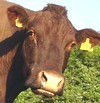Prime Minister convenes Cobra after foot-and-mouth confirmation

Gordon Brown has chaired an emergency session of Cobra committee following the confirmation of foot-and-mouth disease on a farm at Wanborough in
The Prime Minister cut short his holiday to Dorset as did DEFRA secretary Hilary Benn who returned home early from his trip to
Farmers Weekly has learnt that the 64 animals on the farm are resident animals and that few movements on or off the farm have occurred recently. Investigations are also underway on neighbouring farms to establish the disease’s potential spread.
The strain of the disease is also understood to be a mild strain of much less virulence to the pan-Asian strain that swept across the country in 2001.
Activity at the farm has been intense with officials preparing to slaughter the livestock. However, scenes of 2001 such as burning pyres look set to be avoided as the animals are likely to be removed for incineration.
| For more on the outbreak see the FWi foot-and-mouth homepage |
|---|
The CLA, whose 38,000 members run a variety of land and rural based businesses, says the way in which the outbreak is handled will be vital to the survival of many involved in the livestock industry – and in the wider rural economy.
“The countryside cannot afford a repeat of the 2001 debacle – but there is a sense of hope that the government will have learned its lessons and will move decisively to contain and control the disease.”
Mr Fursdon, who farms in
“The scenes of disease and devastation, of a countryside closed for business must not be repeated,” he said.
Livestock farmers are already suffering from the high costs of cattle feed due to the rise in the price of cereals and many have their herds under restrictions as a result of bovine TB.
“Quite simply, this is the last thing they need following the disastrous summer which has brought flooding to some and prevented many others from making hay and silage for winter feed for livestock.”
But Mr Fursdon said it is also vital that the government recognise the potential impact on diversified rural businesses and rural tourism.
“Careful and intelligent handling of this outbreak will, I hope, mean that not only can we avert a disaster for British farming – but we can also make sure that it is not a disaster for the wider rural economy.”
